KEY POINTS:
- Passenger/taxpayer funding
- Service quality is key
- Having a say in the franchise process
- Passenger power
 Read peer reviews for this feature
Read peer reviews for this feature
Download graphs for this feature
To Patrick McLoughlin, the Secretary of State for Transport:
Imagine. Peter Fahy commutes every day from Fleet in Hampshire to London Waterloo. Peter travels with South West Trains ten times a week. Assuming he works around 45 weeks a year, allowing for leave and sickness, he uses the service about 450 times a year. His rail-only annual season ticket now costs £3,520.
Peter has just taken part in an online poll about the possible extension of the franchise for another three years. Who could be better placed to judge whether or not the train company should keep the franchise?
Far-fetched? Perhaps, but in the current debates about the future of rail franchising, one thing is clear: the voice of the passenger should get a boost.
Any new system has to work for passengers, taxpayers, the Government and the private sector. Keeping all parties happy is going to be difficult unless the new system is radically refocused on the needs and voice of what is now the rail industry’s principal source of funding… the passenger.
For too long rail and bus passengers have been the passive recipients of major decisions made on their behalf behind closed doors. The voice of the user and main funder of Britain’s railways should be radically boosted in a process that needs to be opened up to scrutiny. The shift in funding of the railway from the taxpayer to the passenger makes this a priority.
While you can argue about what financing is included and what is not, it is clear that the journey towards the railways becoming funded principally by its users has moved quickly.
The stated intention to shift to a 75% passenger/25% taxpayer split started in 2007. Mainly due to spiralling revenues, fuelled by continuing increases in passenger numbers, we are already at a position where the passengers are putting in nearly two pounds for every taxpayer pound.
So why is central government still taking most of the major decisions about the railway? Why do devolved governments aspire to take over much of this role?
As Local Economic Partnerships are given increasing responsibilities, alliances between train companies and Network Rail areas take root, and the Rail Delivery Group (which brings together Network Rail and the main transport groups) assumes more leadership, it is clear that the ‘passenger universe’ is changing. Old assumptions about who controls the power and the purse strings are changing fast.
This is, in itself, not a bad thing. Long gone are the days when a decision at HQ led to change across the country. However, how the passenger voice is heard and represented becomes more fractured and (potentially) weaker.
Just when passenger power should be growing, is the producer interest in danger of getting back in control? Surely it is we passengers (not the proxies of elected representatives) who should be driving this industry, and the private sector and Network Rail responding?
Should the franchising authority include a minimum number of passenger representatives and/or be formally required to seek and heed the views of users of the services?
Some large-scale strategic decisions will always need to be made by Government because of the political ramifications - HS2 and international links, for example. But many other decisions could be better made in a different place.
However, the current situation is so far from this. Transport Focus has just finished research on what (if any) involvement passengers want in the decision-making processes in the rail and bus industries. The results are fascinating, and are available on our website (http://www.transportfocus.org.uk/research/publications/june-2013-passenger-transport-giving-passengers-a-greater-say).
The media coverage of the West Coast franchise problems has clearly sensitised rail passengers to a degree not seen before. Totally understandably, most passengers do not think about this day-to-day… but they are clearly now thinking about it a bit more.
In the research, passengers said that they feel the rail industry remains a total information void. No one really tries to communicate with them. Therefore, into the void creeps suspicion and lack of trust. Passengers, many of whom rely heavily on the railways to make their lives work, would like to be consulted and want to have more of a say. This can be done.
The results of our research are unequivocal. Passengers are often unaware that a franchise is being negotiated in the first place - for some, the first they know is when station announcements refer to the new company or the train livery changes. They do not feel that enough is being done to involve them in the process, and there is a very definite desire to ‘have more of a say’, in two main ways:
- Priorities for the new franchise - influencing what goes into the franchise specification
- How well the operator is doing at delivering the promises made in its franchise bid
This is a very simple message. Passengers want a chance to influence what services are being purchased on their behalf, and then they want to hold the operator to account for what it actually delivers.
Some passengers pay little attention to the company that operates their train service - it was telling that many East Coast and Greater Anglia passengers in this research could not accurately remember the names of previous (quite recent) operators.
Ultimately, it seemed to matter little to passengers who operated the service, they were far more concerned with the quality of that service. Nor were passengers unduly concerned with the structure of the railway or questions of ownership. What mattered, again, was performance and delivery.
Bus passengers feel even more in the dark about the structure of the industry. The fact that the industry is privately run with limited local government involvement comes as a shock! Passengers like the certainty of some sort of agreement between the private sector and government, and want to see them working together for passenger benefit. So how can we boost the passenger voice in the short term?
Government commitment to rebuilding passengers’ views into the heart of the process, thus giving passengers an enhanced role in deciding whether a future new operator can get a franchise extension, will be welcomed by passengers.
It is crucial that effective passenger consultation and input takes place in the process of potentially extending existing franchises, as some of these decisions will affect passengers’ daily travel for a long time (CrossCountry will potentially get a 43-month extension). If current contract extensions are simply presented as a commercial ‘done deal’, they will not command passenger confidence.
First, this requires good, meaningful consultation to find out what passengers want from their train company. This is not easy - distilling individual passenger aspirations into a coherent set of priorities takes real effort, but we think it worthwhile.
Clearly, in order to comment, passengers need to know that such a consultation is under way in the first place. Our respondents suggested a mixture of posters at stations and on trains, emails to passengers, and surveys. If this consultation can also be extended to include people who do not use rail, then so much the better.
Passengers were relatively pragmatic when it came to the actual decision on who was to ‘win’ a franchise - they recognised that the commercial nature of such bids means that they are unlikely to see (and hence judge) all the detail in advance. This makes it all the more important that past performance, quality and deliverability play a bigger part when assessing bids.
Second, it requires the winner of a franchise competition clearly setting out what it has promised to deliver over the length of the franchise. Passengers want to know why it has been awarded the franchise, and what its investment plans and passenger-facing commitments are. This can cover traditional ‘hard targets’ for elements such as punctuality and cancellations, but also ‘softer’ commitments for passenger satisfaction.
And finally, it requires proper accountability mechanisms. Passengers want to be involved in assessing delivery - in terms of the train company both providing regular progress reports back to passengers, and in actively gathering passenger opinions on performance. The best judges of a service are those who actually use it. I look forward to playing a part in all this. The existing research on passenger priorities creates a good starting point when specifying franchises, and there is plenty of scope to enhance the use of the National Rail Passenger Survey in setting franchise targets and then in monitoring satisfaction with delivery (For example, see http://www.transportfocus.org.uk/research/publications/passenger-views-of-northern-and-transpennine-rail-franchises).
Furthermore, I think another (potentially far more radical) approach could be to make franchise extensions contingent on two things:
- A published ‘opinion’ on the performance of the train company, and its plans for the final years of the franchise, from passenger representatives. This opinion or rating is delivered to the Government, which then has to say why it accepts or rejects the opinion.
- Then a well publicised, well organised passenger ‘vote’. “Do you think company X should be allowed to keep operating this franchise?”
Passengers would need access to plenty of information about the company and its performance, as well as the scope to deliver improvements in the next contract period, but it would marvellously align the interests of the passenger, the train company and the Government.
In the longer term, it is hard to see rail franchising as an activity staying within the Department for Transport. The capacity and capability needed for these major procurement exercises will be difficult to build in this era of central government restraint. Passengers need someone on their side who can match the skills, experience and knowledge of private sector bidding teams. So what price National Rail: a passenger/rail industry joint venture?
Government has toyed with the idea of setting up a government company (‘GoCo’) to handle defence procurement. And it was recently announced that the Highways Agency will be turned into a GoCo, to deliver the Government’s five-year spending plans for the strategic road network. So it is not impossible to imagine that a GoCo could deliver rail franchise procurement in the future.
However, given that we passengers are the main funders of this activity, why should this be a government company? Could the organisation be a not-for-dividend mutual, owned by and accountable to its main shareholders (the passengers) themselves?
Given the projections of revenue for the railway, the industry will be subsidy-free by around 2026, which strengthens this argument even more. Government might need to keep some sort of casting vote or golden share, to ensure the taxpayer interest remains well represented, but otherwise it could finally get out of the detail of running the railway.
The new company could help deliver the objectives that Government requires in return for the subsidy it provides, but even decisions about fare levels could be set free from Government - the industry could become more like a normal regulated utility industry. The final move might be to create a mutual organisation that the industry also plays a part in - a true joint venture.
Managing the different pressure and accountabilities within such an organisation would be far from easy, however. Tough decisions would have to be made, but the best transparency would help this. Under such a structure, trials and pilots on ownership, devolution, open access, franchise lengths and types could all take place.
The time has come to put passenger needs clearly and squarely at the heart of all rail industry decision-making. Passengers in many parts of the country are now the main funders of rail, and that balance should argue for much greater engagement, consistent delivery and transparency on the part of the train companies, Network Rail, government in all its forms, and the Office of Rail and Road. The ORR is also thinking radically about an industry where subsidy becomes the exception rather than the norm (http://www.rail-reg.gov.uk/server/show/ConWebDoc.11196).
But regardless of the structures that are set up in future, the final accountability should all come back to one place… the passenger.
Read the peer reviews for this feature
Download the graphs for this feature
 Peer review: Alex Hynes
Peer review: Alex Hynes
Managing Director, Northern Rail
Anthony’s article highlights an important point - customer needs should indeed be at the heart of decision-making when it comes to rail. As an industry we provide a vital public service, one that should meet the requirements of its users. It is the question of how best to achieve this that is worthy of further debate and consideration.
As Anthony points out, it is not practical for all customers of any given franchise to be directly involved in specifying, letting and monitoring delivery of its operator - with so many competing requirements, it would simply be a case of ‘too many cooks’!
However, there are ways to ensure that customers’ voices and requirements are heard and acted on, and this needs to be captured at the very start of the franchise process - the specification of what to buy. It is government ministers who decide on this specification - MPs elected by the public to represent their views.
The second element for consideration is who to buy from - ultimately the responsibility of civil servants after evaluation of tenders. These are distinct stages, but the reality is that it is the start of this - the specification, not the chosen operator or winner of the competition - that will determine the success or otherwise of a rail franchise in meeting customer needs.
The Northern franchise is a prime example of the above, both in practice and the difference it can make. In the competition for the franchise that began in 2004, the specification was focused on maintenance and minimal spend, rather than growth or investment. Bidders submitted their tenders on this basis, and this set the constraints for the remainder of the franchise term.
Fast-forward ten years, and the competition for the next Northern franchise is under way and looking radically different. Before setting the specification for both the Northern Rail and TransPennine Express franchises, the DfT undertook a significant consultation exercise, encouraging all to take part (including customers and their representative groups).
The DfT received over 20,000 responses - the customer voice in action. It is this input, together with a broader recognition of the importance of rail in helping the economy of the region, that has created a franchise specification that will bring transformational change for customers, colleagues and stakeholders. The role of Rail North in future franchises can only help ensure greater representation for customers through local decision-making.
While past performance plays a role in the pre-qualification process, tenders will be judged on price and quality. London Overground shows what can be achieved through the right specification, how initial investment for customer benefit drives longer-term improvements, customer satisfaction and patronage.
Whichever bidder wins the competition, the operator of the next Northern franchise will be delivering new trains, better trains and more services when and where people need them most. They will be investing in better station facilities, driving innovation and working more closely with communities.
Should customer needs be placed at the part of this process? Yes. Does that require a wholescale change? No. It’s ensuring that the customer voice is heard at the beginning of the process, in helping to shape the specification of franchises through consultation, that will ensure the rail industry delivers what is needed.
 Peer review: Michael Roberts
Peer review: Michael Roberts
Director General, Rail Delivery Group
Anthony is right to remind us that the customer needs to be at the centre of everything that the railway delivers.
Since the Brown Review in January 2013, there has been significant progress towards a better process for franchising. This includes wide stakeholder consultation before the bidding process begins, and a clear focus on quality of delivery within the franchise contract, underpinning the relationship between the passenger and the train operator - and with proper incentives to deliver on the areas identified as priorities. The recent specifications for the TransPennine Express and Northern franchises were developed and improved by this process of wider consultation.
Train operators have argued for passenger satisfaction to form part of the approach to franchise specification, and the Rail Delivery Group is working closely with the DfT and devolved administrations so that future franchises continue to develop. Those competing for franchises increasingly have sought to understand the needs of customers when preparing their bids - those that succeed look to National Rail Passenger Survey results and other sources of customer feedback to track how well they are doing.
Indeed, one of the challenges we still need to address is to ensure that franchise agreements are capable of responding better to the changes in passenger expectations and requirements that happen during the lifetime of a franchise. Even a decade ago, the impact of the expansion of mobile technology and access to information on the move could not have been predicted precisely.
Anthony makes a number of thought-provoking suggestions about the influence that passengers might have on franchises. One area of opportunity that he could have added is smart ticketing, which could transform national rail’s relationship with its customers.
Devolution and locally-based decision-making is another opportunity to ensure that the railway gets closer to the end-user, although whether central government can be removed entirely from the process remains to be seen, given the importance of rail to our national economy.
However extensive and radical the role that passengers play in future franchise procurement, Anthony raises two final issues that are worth touching on.
The first relates to industry finances. His logic of arguing for a greater passenger voice in a railway increasingly funded through the farebox is strong, but the likely future state of industry finances is less clear. It is neither obvious what the ‘right’ split between farepayers and taxpayers should be, nor what the rationale is for whether it should be 50/50, 75/25, 100% (or anything else).
The second relates to passenger understanding of how the railway works. The low level of knowledge highlighted by Transport Focus is consistent with our own analysis of public views. This would need to change if passengers were to have a greater, more direct, role in franchising.
Perhaps there is a role for Transport Focus in helping to inform passengers in this way?
 Peer review: Stephen Joseph
Peer review: Stephen Joseph
Chief Executive, Campaign for Better Transport
Anthony has, as ever, nailed a crucial issue - the importance of passengers being involved as full, grown-up partners in the railways. I think his suggestions for increasing passenger involvement in the franchising process and in feeding back on how franchisees are doing are very sound.
I’d echo his view that passengers don’t feel engaged in franchising and other railway industry processes - like Transport Focus, we get asked by local user groups and others (parish and district councils, for example) about how they can influence local rail services and facilities such as stations. In fact, we have (with DfT support) ended up creating a Passenger’s Guide to Franchising to explain to ordinary people how the system works and how they can influence it (www.bettertransport.org.uk/sites/default/files/research-files/franchising-guide.pdf).
However, the issue of the moment is Network Rail. Even the best performing and most responsive train operator will look like a failure to the public if the infrastructure lets them down. Not only is this too often the case at present, the wholesale failure of communication to passengers that often accompanies problems on the railways (and which drives passengers absolutely wild) is very often down to Network Rail and its failure to communicate to train operators. The recent high-profile problems at London Bridge, Finsbury Park and Paddington have all involved a failure of communication between operators and Network Rail.
So one challenge that the various reviews looking at Network Rail will need to address is to find ways of changing the culture so that it sees satisfying users as a core part of its business and of its day-to-day operations. This raises much wider issues - whether the rail structure needs to change so that increases in user numbers and satisfaction are directly reflected in NR’s bottom line.
A traditional “plc” approach to this would be to attach success in these areas to bonuses for senior managers. But maybe a more radical way would be a John Lewis Partnership approach, mutualising Network Rail in some way so that all staff get financial rewards from increased user satisfaction and increased revenue.
However, I’m not sure that the passenger voice can entirely determine the future of the railway. The railways affect wider interests and have wider impacts than simply on their current users. Especially in cities, railways form part of wider transport networks that should be integrated more closely, and the current push towards devolution of local rail services to groupings of local authorities reflects this.
The interests of present users have then to be considered alongside the wider social, economic and environmental impacts, and the extra users that achieving these benefits will represent also need to have their interests considered. There is a really interesting question as to how the new devolved railway operations and “combined authorities” can involve users and the wider public, both in day-to-day operations so they become more passenger-focused and in planning future developments.
With passengers providing the bulk of the income for the railway, they will increasingly flex their muscles and will want a say over what they are getting for the money they contribute. For some parts of the railway, that could be challenging.


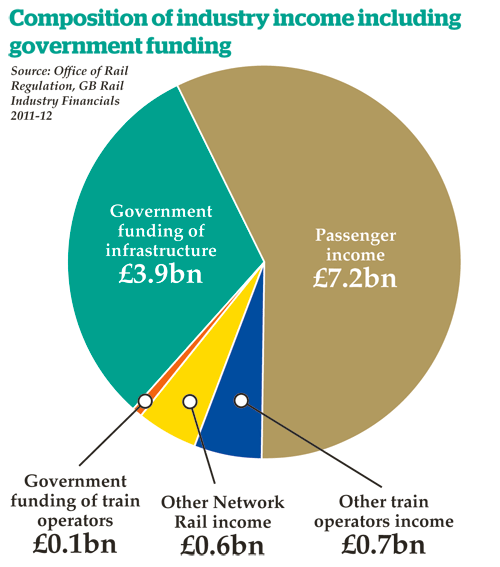
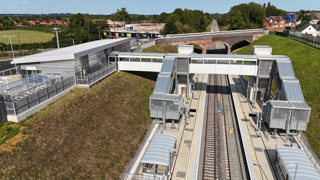
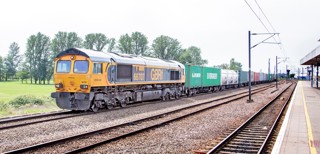
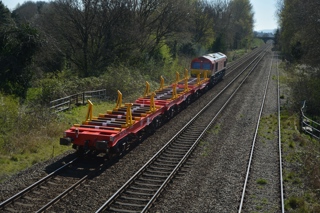
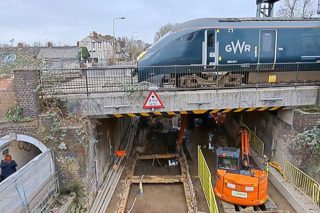
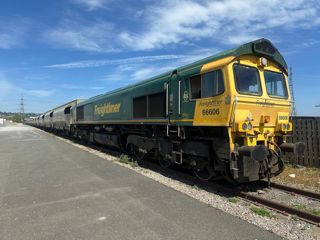




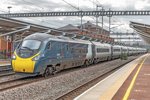







Login to comment
Comments
No comments have been made yet.